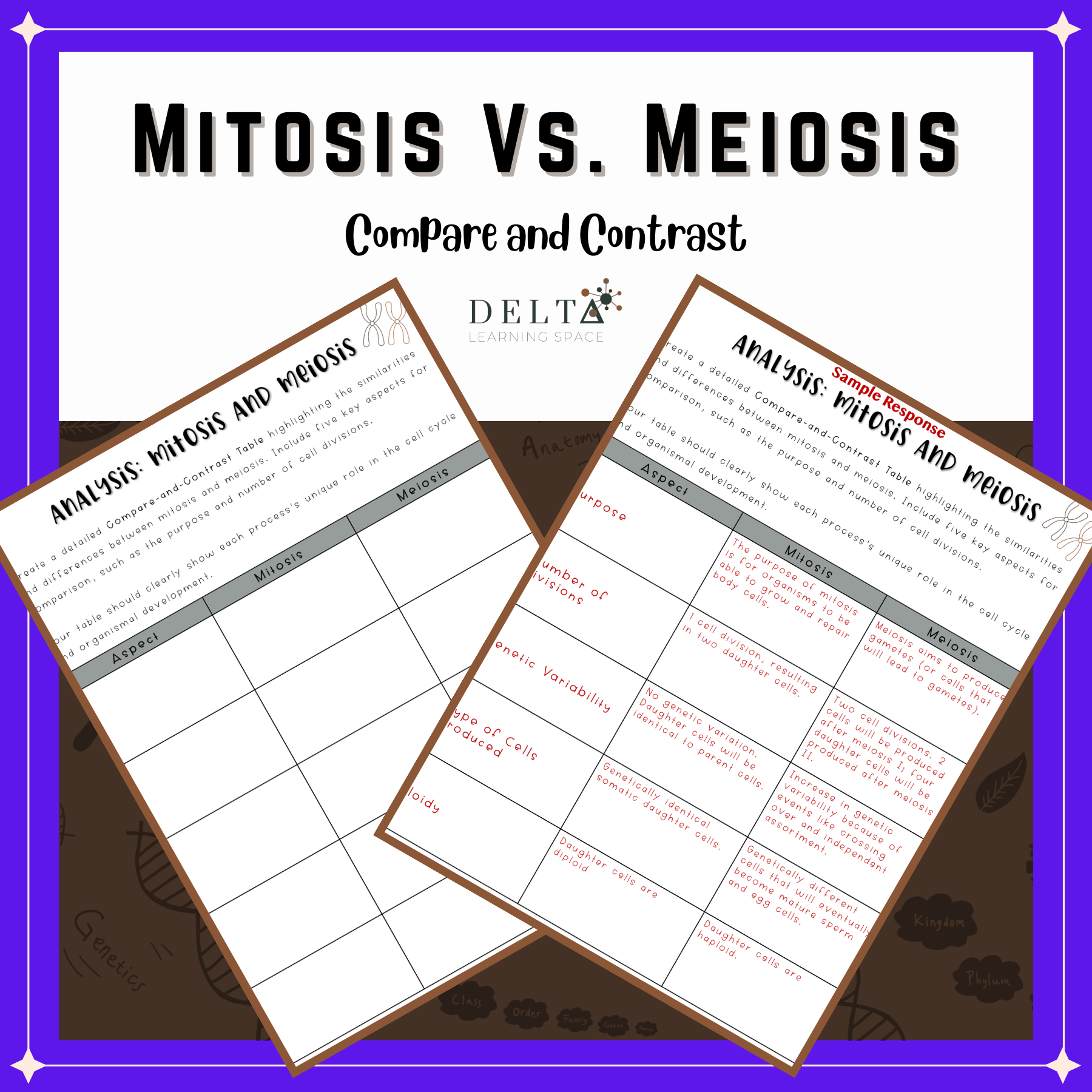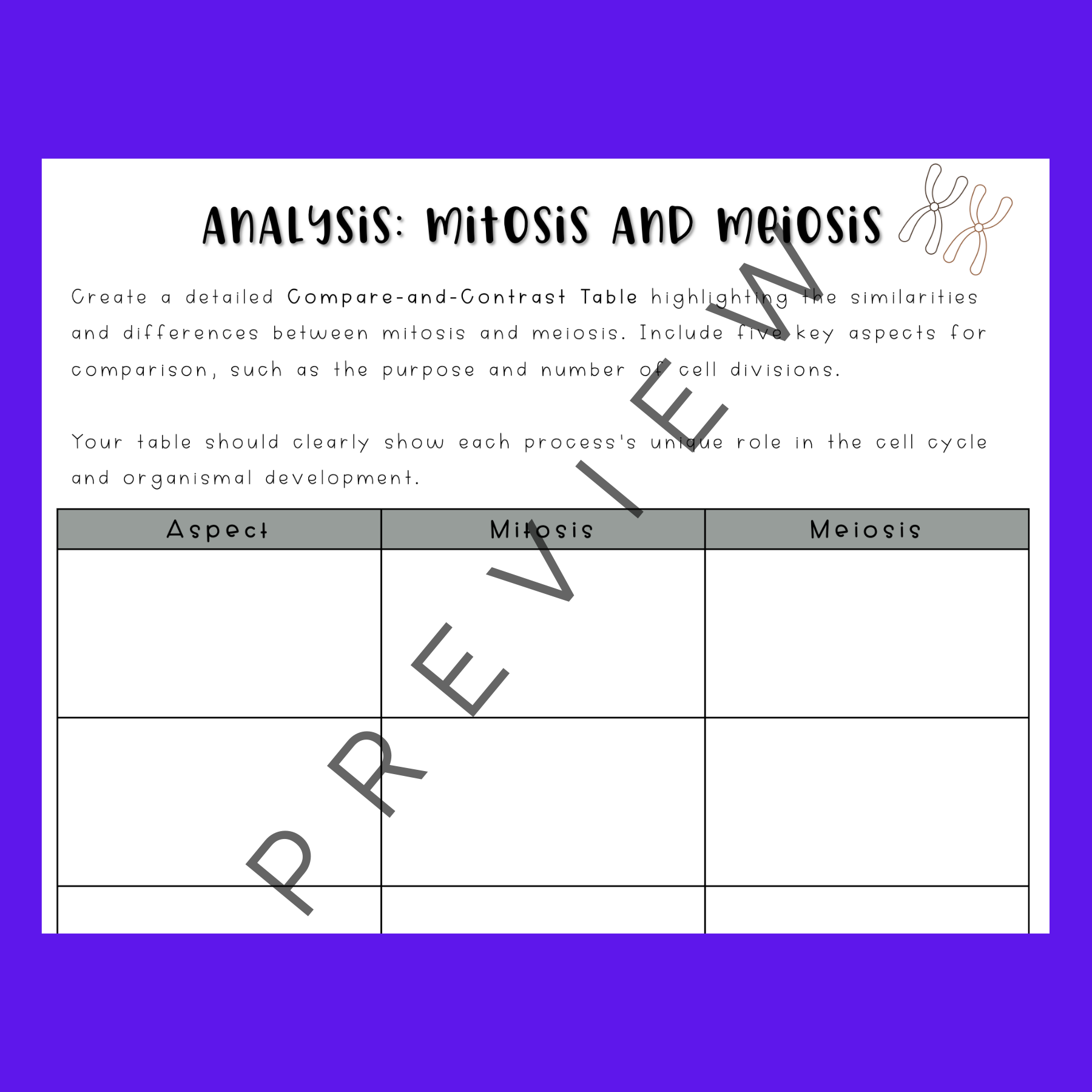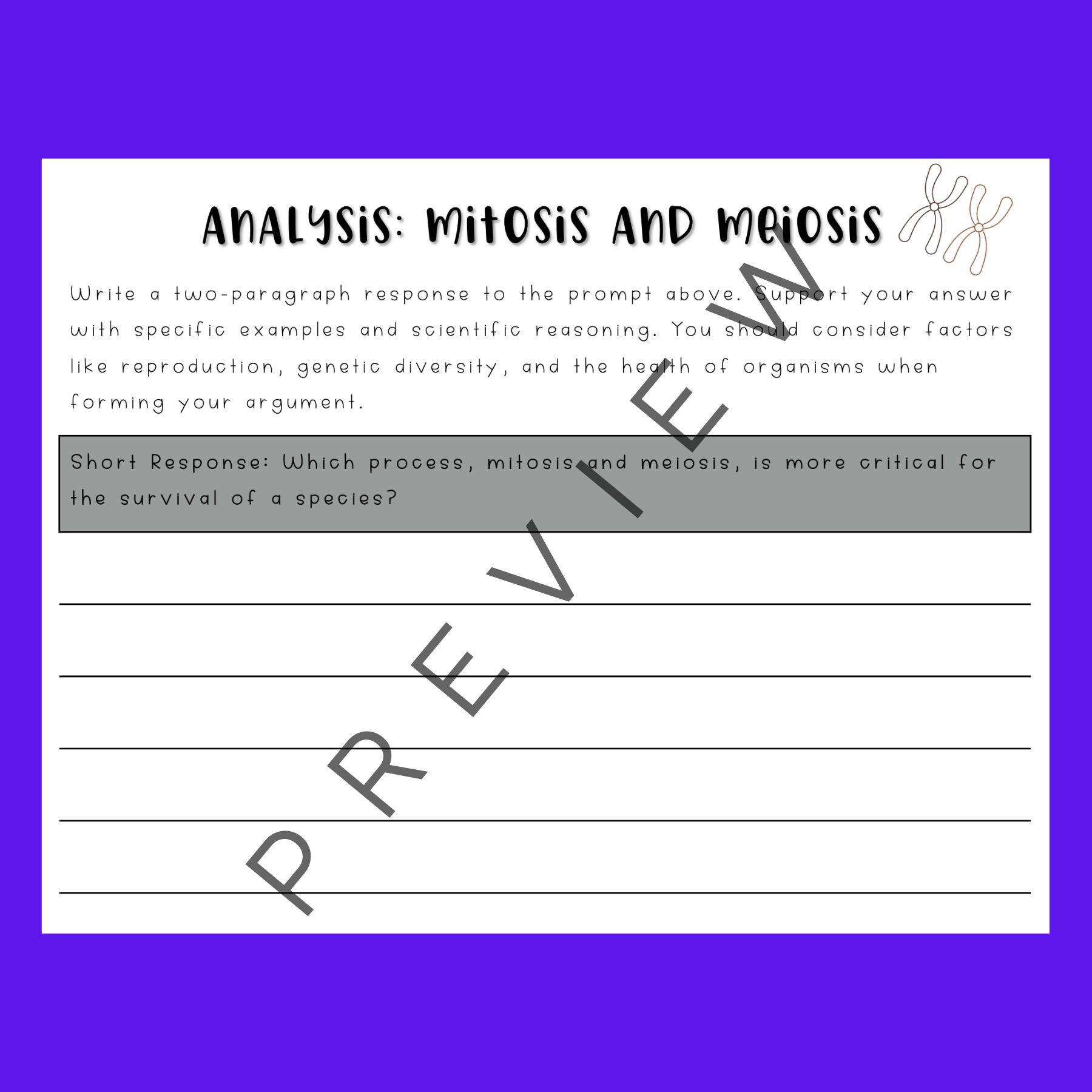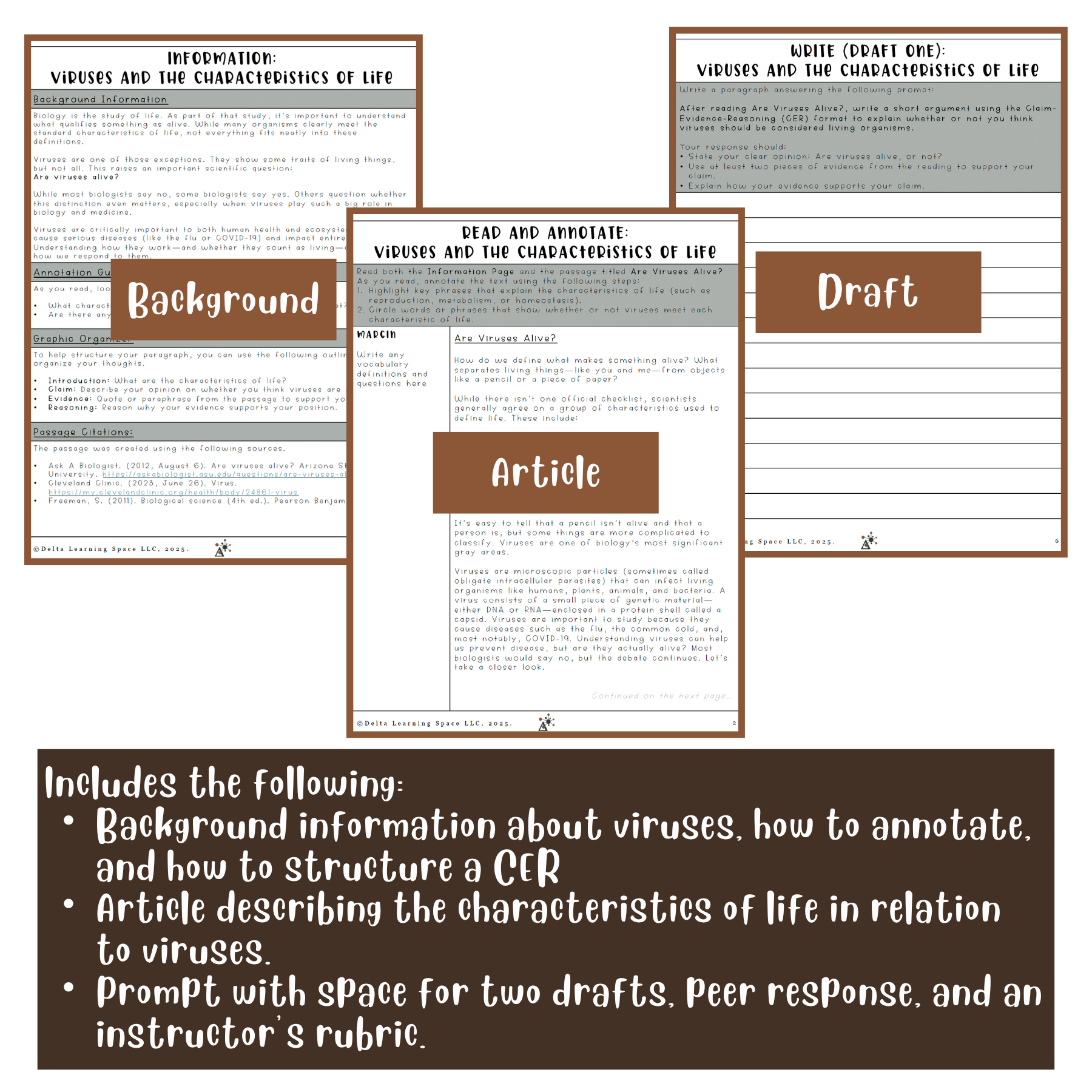Cross-Disciplinary Applications:
This activity integrates science literacy and writing skills, making it a versatile tool for interdisciplinary instruction.
Science and Literacy:
Students read, annotate, and analyze a scientific text about the p53 gene, enhancing their ability to interpret complex biological information. They apply close reading strategies and develop annotation techniques that are valuable across multiple subjects.
Writing and Communication:
The assignment emphasizes evidence-based writing, aligning with language arts standards for constructing organized, well-supported arguments. This practice builds proficiency in expository and analytical writing, skills critical for both science and English courses.
Peer Review and Revision:
Through structured peer feedback and multiple drafts, students learn to evaluate and refine written work, promoting collaboration and metacognitive awareness, applicable in any subject where writing is assessed.
Critical Thinking and Ethics:
By exploring the implications of p53 mutations in cancer, students engage with bioethical considerations, encouraging reflection on scientific responsibility and human health, a topic suitable for social studies discussions around medical ethics and societal impact.










